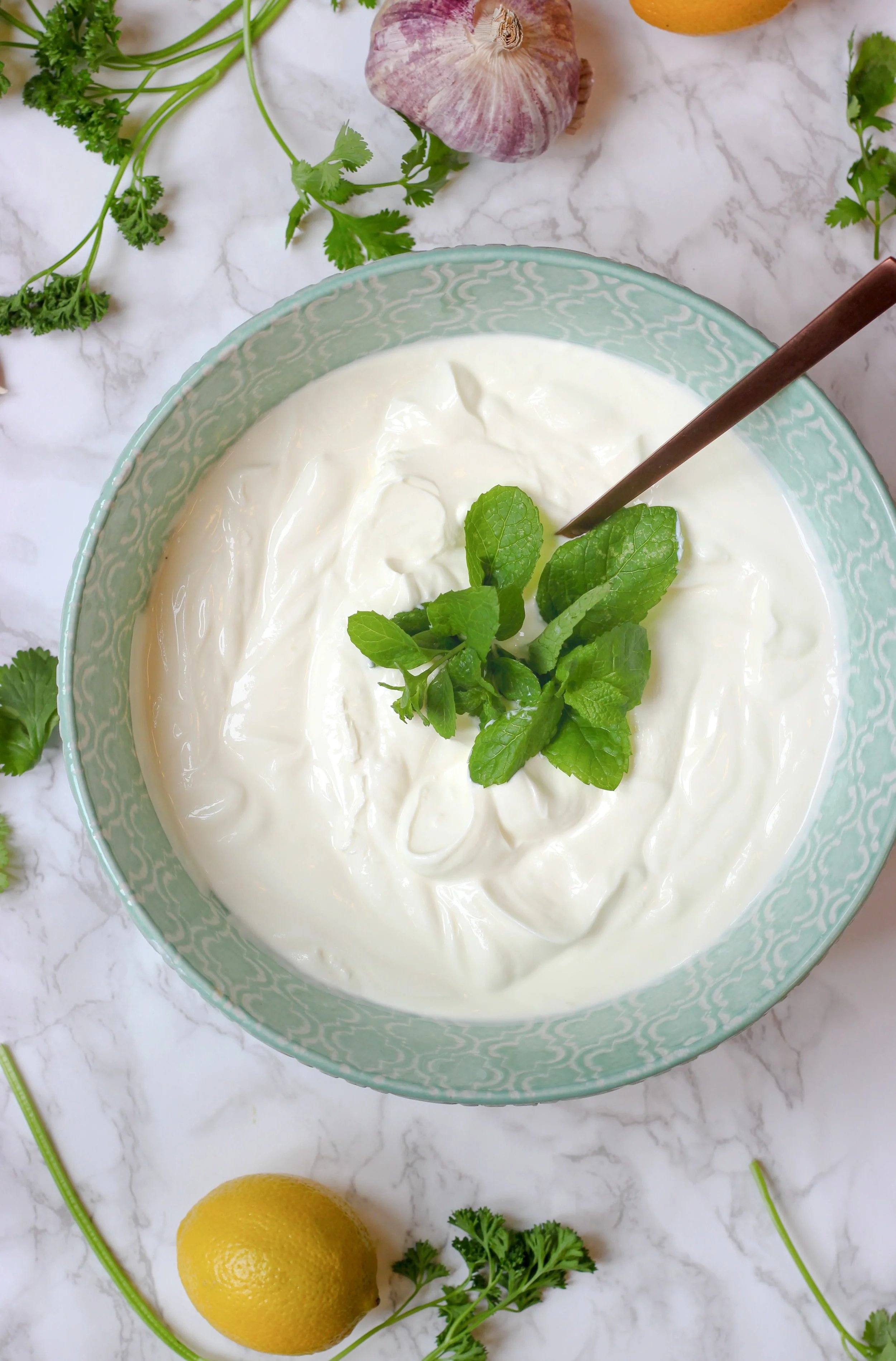What’s in your gut?
There are trillions of microbes that happily live in our gut. These friendly microbes do more than help us digest foods, make vitamins and protect us from the not-so-friendly microbes - they have mood-boosting and stress-busting functions too! Right now, there’s so much research that is just starting to figure out the many gut-microbe-brain connections and we’re finding out more about their excellent health and mood/stress benefits every day.
Photo by Kim Daniels on Unsplash
GUT MICROBES AND PROBIOTICS
The microbes that live in our guts are known as our “gut microbiota”. The microbes that we can ingest are known as “probiotics”. Probiotics are live organisms you can eat, drink or take as a supplement. They turn milk into yogurt and cabbage into sauerkraut, and they are great for both your gut health and mental health. Special probiotics that have mental health benefits are called “psychobiotics,” (psycho = mental health, biotics = live). They are live organisms that can benefit our psyche.
PROBIOTIC-RICH FOODS AND SUPPLEMENTS
Probiotics can be found in yogurt, sauerkraut (and other fermented veggies), miso, tempeh, and kimchi. You can drink them in kefir or kombucha, my absolute favorite is Inner Eco coconut water kefir which has been a hit with my son since he was about a year old. You can even make lacto-fermented veggies at home! Of course, there are a number of probiotic supplements available too. A personalized nutrition and medicine gain steam, developers of probiotic formulations are expanding beyond the one size fits all approach (yay!). Something to consider when choosing a probiotic is the strains. Finding the correct probiotic starts with matching the symptom(s) to the strain. For example, the symptoms of insomnia are supported better with different strains than the ones that would support symptoms of depression or anxiety. There is also something to be said about the synergy of multiple strains rather than just one and with all supplements, quality matters!
Photo by micheile dot com on Unsplash
GUT-BRAIN CONNECTION
It may not seem obvious or intuitive, but your body is interconnected in many ways and more research is focusing on the “microbiota-gut-brain axis.” It’s the very complex connection between your gut, its microbes, and your brain. This new field has been called a “paradigm shift in neuroscience” (Dinan, 2017). In fact, there are a number of ways that we’re beginning to understand how our gut microbes can affect our brains. One is via the “vagus” nerve, which is a nerve that directly connects your gut to your brain. The other ways are through “biochemical messengers.” Biochemicals are made in your gut and travel throughout the body to communicate with other organs, including your brain. Examples of biochemicals include short-chain fatty acids, cytokines, and even tryptophan (the amino acid that the neurotransmitters melatonin and serotonin are made from). The exciting thing is that this may help us with not only mood and stress, but the microbiota-gut-brain axis may one day prove to be helpful for other conditions like autism and Parkinson’s.
Photo by Robina Weermeijer on Unsplash
MOOD, STRESS, AND YOUR MICROBES
Several studies show that stressed rodents not only have increased stress hormones and stressed behaviors; but, they also have different gut microbes! This has also been studied, to a small extent, in people too. One study showed that moms with high levels of stress hormones during pregnancy had infants with more of the “bad” gut microbes. Also, depending on how the baby was delivered (Cesarean or vaginal), there will be different colonization of microbiota. But, can it work the other way around? Can changing our gut microbes affect our moods and stress responses? Studies of rodents that grow up without any gut microbes at all (in a “bacteria-free” environment) respond to stress more than mice with normal gut microbes. Then when they’re given either a probiotic or gut microbes from non-stressed mice, their stress responses often go back to normal. “Gut microbiota and probiotics alter behavior and brain neurochemistry.” (Ait-Belgnaoui, et. al., 2012) That’s a pretty powerful statement. Many animal studies show positive effects on behavior when they get probiotic supplements. For example, after a probiotic, stressed rats had lower levels of both stress hormones and an inflammatory molecule associated with depression (“LPS” - lipopolysaccharide). Human studies show that after a few weeks of taking probiotic foods or supplements, healthy people have reduced stress hormones, feelings of stress, negative thoughts, and sad moods. One fascinating study showed that when people took probiotics, brain MRI (magnetic resonance imaging) tests showed reduced brain activity for negative and aggressive thoughts! There is some exciting research on the positive effect that probiotics can have on moods and stress. So, what can you do to nurture your own healthy gut microbes?
Photo by Heather Ford on Unsplash
PREBIOTICS
In Part 1 we talked about the benefits of consuming probiotic-rich food. Once the gut microbes reside in our guts, we need to feed them! PREbiotics are food for gut microbes and when fermented in the gut, produce specific changes in bacterial composition or activity. They are your friendly gut microbes’ favorite delicacies, so they’ll happily grow and multiply. Prebiotics are basically foods that contain fiber. Things like fruits, vegetables, nuts, and seeds. Even dark chocolate (preferably with at least 70% cocoa). Foods particularly high in prebiotics include jicama, asparagus, avocado, whole grains, and allium vegetables like onions, garlic, leeks, and shallots. Giving animals prebiotics has been shown to reduce stress hormones and anxiety-related behaviors. In people, studies show that taking psychobiotics along with prebiotics can improve both the microbes in our gut as well as our mood!
Try out this delicious prebiotic rich recipe!




